Introduction to Experiments in Economics and Management - 2 ECTS
| Faculty | ||||||||||||
|
Orsola Garofalo, Associate Professor, Department of Strategy and Innovation, Copenhagen Business School, Denmark. Diego Zunino, Assistant Professor, KTO Research Center, SKEMA Business School, Université Côte d’Azur. |
||||||||||||
Course Coordinator |
||||||||||||
| Orsola Garofalo, Associate Professor, CBS & Diego Zunino, Assistant Professor, KTO Research Center | ||||||||||||
Prerequisites |
||||||||||||
| No prerequisite. | ||||||||||||
Aim |
||||||||||||
| The aim of this course is to offer insights related to the use of experiments in research projects in the area of economics and management. The specific focus of the course is to develop an understanding of how to design an experiment to answer a research question. | ||||||||||||
Course content |
||||||||||||
| The structure of the course is based on 2 main activities and related objective: 1. Lecture. One or more faculty offer class-based lecture on research papers using experiments in economics and management. The purpose of this activity is to engage students in papers discussion with the responsible faculty in charge of the session and other students. 2. Experimental Workshop. The students divide in group and develop together the design of an experiment to answer a specific research question. The students present their design, discuss it with their peers, and receive feedback from the faculty. The course includes 2 lecture-based sessions of 3 hours each, and 1 experimental workshop of 4 hours. Because of the small numbers of participants, the sessions will be interactive where students will prepare memos and lead discussions on the assigned readings. |
||||||||||||
Teaching style |
||||||||||||
|
The course is based on a high level of student involvement. Students are expected to be thoroughly prepared and to take an active part in the presentation and discussion of the material. Given the high content-to-time ratio, teaching is based on lecturing, illustrations and discussions and its success is predicated on interactive student involvement. |
||||||||||||
Lecture plan |
||||||||||||
|
||||||||||||
Learning objectives |
||||||||||||
|
The course provides an overview on the most recent use of experiments in management and economics.
a. Different use of lab and field experiments: advantages and disadvantages b. Different choice of the experimental design c. Identification of key problems with the implementation |
||||||||||||
Exam |
||||||||||||
| There is no exam at the end of the course. However, to obtain the course certificates the participants are expected to show high level of preparation and class participation. Minimum 80% attendance is required. | ||||||||||||
Other |
||||||||||||
Start date |
||||||||||||
| 05/09/2022 | ||||||||||||
End date |
||||||||||||
| 06/09/2022 | ||||||||||||
Level |
||||||||||||
| PhD | ||||||||||||
ECTS |
||||||||||||
| 2 | ||||||||||||
Language |
||||||||||||
| English | ||||||||||||
Course Literature |
||||||||||||
NOTE: to be revised before class
|
||||||||||||
Information about the Event
Date and time Monday 5 September 2022 at 09:00 to Tuesday 6 September 2022 at 16:00
Registration Deadline Monday 5 September 2022 at 09:00
Location
Dalgas Have - Room: DH.V.0.20
Dalgas Have 15
Frederiksberg
DK-2000
 Loading
Loading



